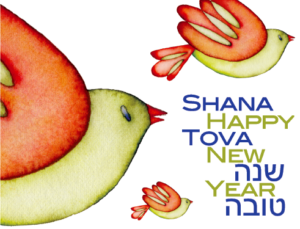In the midst of a dreadful pandemic that is sweeping our nation and the world, we are preparing for our High Holy Days, and the first of them Rosh Hashanah marks the beginning of the Hebrew New Year. It is, according to Jewish tradition, the Day of Judgment for the entire humanity created in God’s image. As we approach Rosh Hashanah in this time of crisis and uncertainty we seek words of comfort and wisdom in the Torah and in the words of our sages.
Among the many blessings in Deuteronomy 28 we read, “God will make you the head, not the tail,” and I note that it is customary in some communities at the meal on the night of Rosh Hashanah to recite this blessing, ending it with the words, “may it be so.”
At first glance the blessing’s relevance to our life is not obvious and furthermore it seems that there is an unnecessary repetition in the blessing since it makes perfect sense that the one who would be the head would not be a tail. Yet, Ramban who saw beyond the redundancy emphasized that it is feasible to hold both positions simultaneously. He noted that “it is possible that one would be the head of many nations, yet the tail of one who is higher,” so that one could be the head of wolves and a tail of the lion, “the head of weaker kings yet the tail of a strong one who rules over them”.
The meaning of the blessing according to Ramban concerns the external political status of the nation of Israel as the rest of the verse indicates, “you will always be at the top and never at the bottom.” The sages on the other hand thought that the blessing was about the quality of leadership from within, those who lead the people, “that there will be no judges who would be deceitful and you will be heads of Torah.” Following the sages approach Rabbi Hirsch commented that the blessing was about the quality of the people Israel, that the concept ‘head’ indicates a unique quality of exception and excellence: “God will make you the head that walks ahead and leads, not a tail that follows others. This is a blessing that you will enjoy because of your faithfulness and it will draw the eyes of the nations; they will see you as a model (an ideal) to emulate rather than you becoming a follower wishing to imitate them.”
Following the sages and Rabbi Hirsch we see attention focused on the very quality of leadership, one that is thoughtfully ahead rather than mindlessly following others. On this coming Rosh Hashanah of world pandemic and crisis, may we all be the deserving head, an ethical model to lead. And turning to God, Avinu Malkeinu, asking for healing for ourselves and the whole world. May this year and its maledictions end and a new one begin with its blessings. Amen!
Translated from the Hebrew by Ayala Emmett

